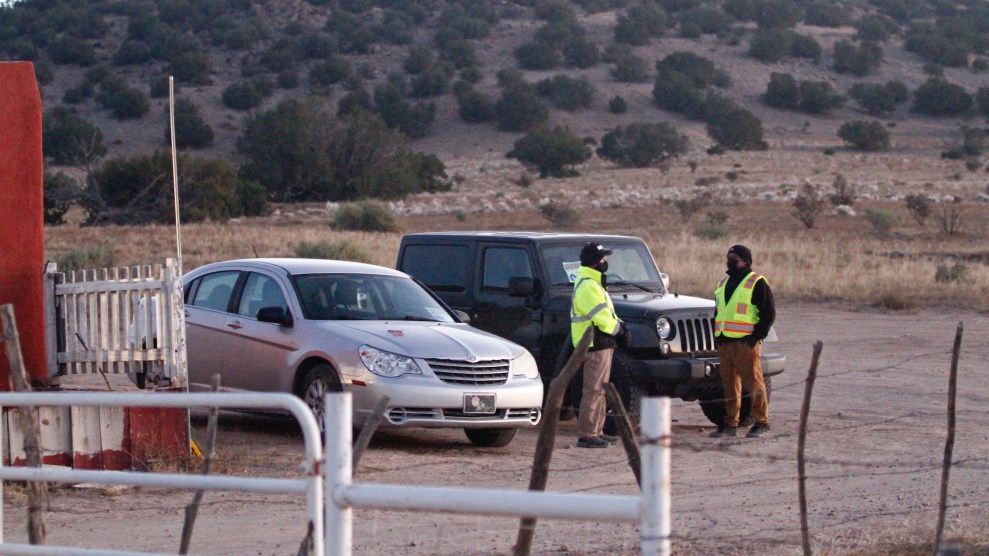
Security stands at the entrance to a film set in New Mexico where Alec Baldwin fired a prop gun on Thursday, killing cinematographer Halyna Hutchins.Cedar Attanasio/AP
The camera crew had walked off the set earlier that day in protest of working conditions. Producers threatened to call security on them before bringing in non-union replacements. The prop gun had already misfired multiple times. These are just some of the details emerging about the events that led up to Alec Baldwin fatally shooting cinematographer Halyna Hutchins on Thursday, according to a new Los Angeles Times report.
The shooting is first and foremost a tragedy. Hutchins, who was 42, leaves behind a husband and a 9-year-old son. Director Joel Souza was hospitalized.
But the incident also begs the question how these conditions are able to persist on sets. The events that prompted workers to walk off the set in New Mexico appear to have been detailed in a series of Facebook replies written before the shooting. A person who identified themselves as a member of the camera crew on Rust, the movie Baldwin was co-producing and starring in, wrote a series of posts about how the crew was being treated like “Absolute dog shit.”
The posts were written in response to a video of Baldwin expressing his solidarity with Hollywood’s blue-collar workforce, which is now deciding whether to ratify a labor agreement reached on Saturday between producers and the leaders of their union, the International Alliance of Theatrical Stage Employees. “I want to say to the people in IATSE, do what you need to do,” Baldwin said about the upcoming vote. “You don’t like that contract? You think the contract could be better? You want to go on strike? Go on strike.”
Under the video, the crew member, whose Facebook page identifies them as a member of IATSE Local 600, highlights conditions similar to the ones described in the Times:
At the moment I’m fighting to get my crew, on this movie, hotel rooms when we go long or are too tired to drive the hour back from location to albuquerque. They either say no or offer a garbage roadside motel that’s used as a homeless shelter. In fact the line producer on the flick complained the motel she booked charges her 10 bucks more per night than the homeless. They haven’t even paid the crew a proper check.
“We left,” the crew member wrote in another reply posted before the shooting on Thursday. “I’m sure y’all will hear about it today.” The Times article names three anonymous sources that say six hours after the crew walked off Baldwin fired the shot that killed Hutchins.
The event is a reminder of how little we usually hear about the conditions that recently led IATSE’s members to authorize a strike for the first time in the union’s 128-year history. The results of the vote were overwhelming, with nearly 90 percent of members casting ballots and 98 percent of those members voting to authorize a strike. Even before Thursday, reaction to the deal it led to had been mixed. Many objected to the fact that it would still allow for workdays as long as 14 hours, not including time spent commuting. Although it may still end up being ratified, news of the shooting is likely to lead more people to oppose the agreement.
On Sunday, I spoke with Fae Weichsel, a member of IATSE Local 600 who works as a first assistant camera, about the deal that had been reached the night before. Weichsel, whom I’d got in contact with through IATSE’s press shop, said they were leaning toward voting yes. On Friday, after seeing what had happened in New Mexico, they told me they were leaning toward no.
















